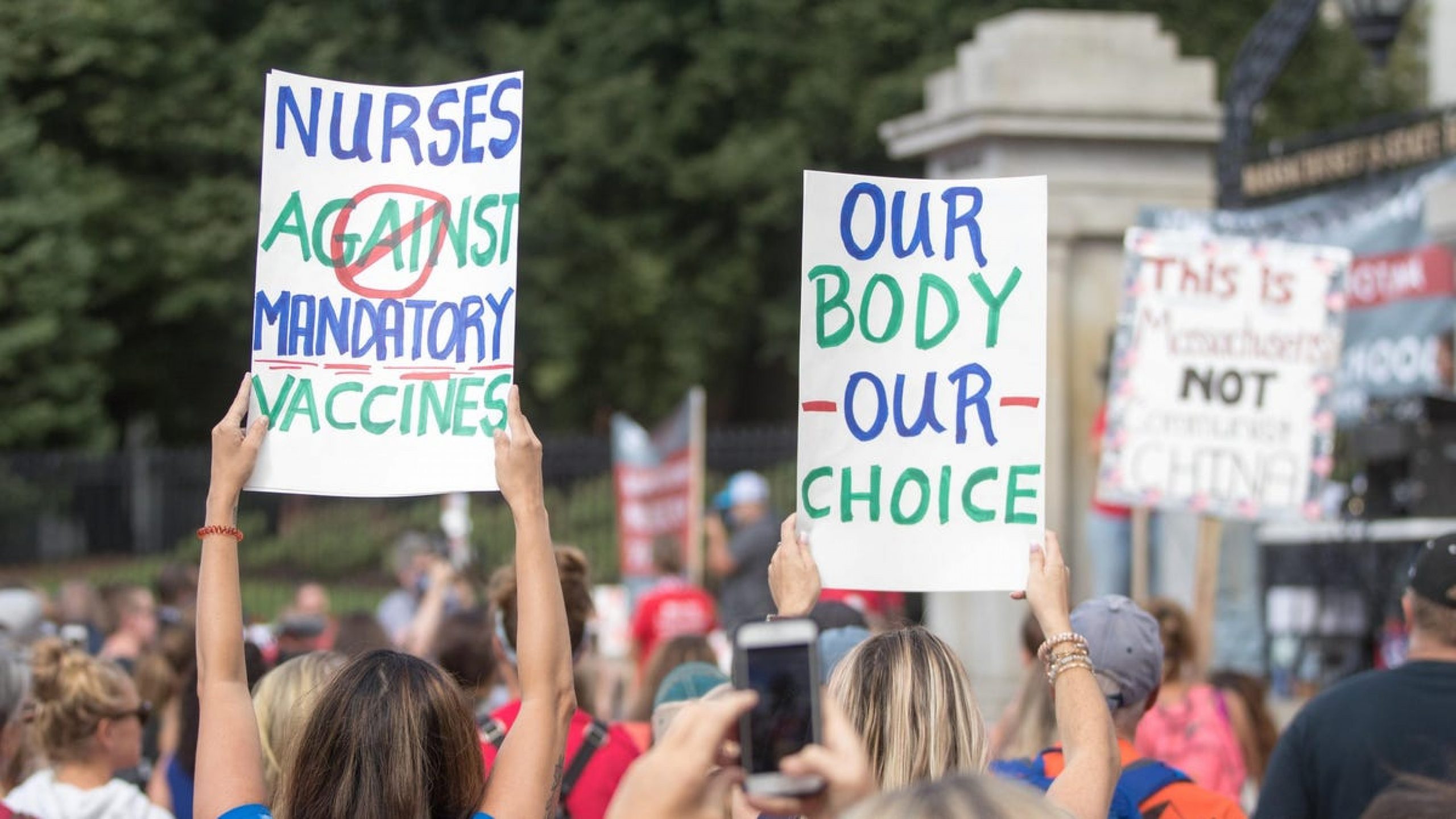Bars With Vaccine Requirements Are Being Flooded With Negative Reviews: Report
With the weather heating up, hot vax summer is in full swing. Unfortunately, that also means anti-vaxxers are back on their faux-self-righteous bullshit, and they’ve reportedly been review-bombing bars that attempt to isolate vaccinated customers from unvaccinated ones.
That’s according to a weekend report from the MIT Technology Review. The outlet spoke with several establishments that claimed to have been spammed with one-star reviews on Yelp and Google Reviews after requiring proof of vaccination or instituting separate policies for unvaccinated patrons, such as limiting them to outdoor seating or to-go orders.
So-called review-bombing is a tactic anti-maskers have used throughout the pandemic, attempting to tank the average review score of businesses that enforce mask-wearing and other safety protocols widely promoted by health experts.
Richard Knapp, who owns a bar called Mother’s Ruin in Manhattan, told the Technology Review that the negative comments came pouring in after he put up a sign that stated only vaccinated patrons could dine indoors. Unvaccinated patrons would either have to sit outside or order their food to go, the sign reads. A picture of the sign posted to Instagram on June 4 went viral among European anti-vaxxers on Reddit. Not long after, his bar’s page on Yelp and Google Reviews was bombarded with one-star reviews from accounts as far away as Europe. And with them came the hate mail.
In an interview with the outlet, Knapp estimated that he had received about a “few dozen” seething emails so far.
G/O Media may get a commission
“I’ve been called a Nazi and a communist in the same sentence,” he said. “People hope that our bar burns down. It’s a name and shame campaign.”
“We’re just trying to survive through the most traumatic experience that’s ever hit the hospitality industry,” Knapp continued. “The idea that we are under attack by this community and there is no real vehicle to combat it, that’s frustrating.”
Marshall Smith, another bar owner the Technology Review spoke with, said he didn’t think twice about asking customers to show their vaccination cards at the door to his Denver-based establishment, Bar Max.
“I didn’t consider the politics, and perhaps that was naive on my part,” he said. He instituted the policy in April, and within days the bar’s average rating on a five-star scale dropped by more than half a star.
“We don’t do a lot of advertising because people look at our reviews,” Smith said. “We’ve built six years of good reviews that’s been chiseled away over a matter of months.”
While businesses can tackle this problem on their own websites by limiting reviews to verified customers, widely used third-party platforms such as Yelp and Google Reviews let anyone rate and review businesses. Those platforms are also usually the first results people see when trying to find a place to eat.
“Outliers pull down averages, that’s math. It’s a pretty effective means of attack for the folks who do this,” Smith told the Technology Review.
Yelp has said its existing stopgaps to filter out possible spammers have been working overtime throughout the pandemic. Through its Consumers Alerts program, which the company launched in 2012, Yelp attempts to curb the spread of misinformation by posting an “unusual activity alert” on a business’s page when its systems detect abnormal activity or concentrated campaigns to mislead customers.
According to the company’s 2020 Trust and Safety Report, Yelp saw a 206% year-over-year increase in “media-fueled incidents,” i.e. unusual activity alerts believed to be from a recent news event or social media post rather than an actual customer’s experience with a business.
In a press statement, Yelp’s vice president of user operations Noorie Malik said the company has a “team of moderators” that investigate pages following unusual fluctuations in traffic.
“After we’ve seen activity dramatically decrease or stop, we will then clean up the page so that only firsthand consumer experiences are reflected,” she said in a statement shared with the Technology Review and Gizmodo. So far this year, Yelp has placed more than 15 unusual activity alerts on pages “related to a business’s stance on covid-19 vaccinations,” she added.
The majority of these alerts have been for restaurants and bars, and there’s been an uptick in the last month, Malik said, which she attributed to vaccinations becoming more widely available.
As for Google Reviews, the search giant has always been tight-lipped about the inner workings of its algorithms, so while we know its terms of service prohibits things like spam, it remains unclear exactly how its review filter operates. Unlike Yelp, Google doesn’t list alerts on pages with unusual traffic fluctuations, so users have no way of knowing if the reviews they’re seeing are the result of a name-and-shame campaign.
None of the businesses the Technology Review spoke with were able to contact Google’s team, and the company didn’t respond to multiple requests for comment. (We’ve had no luck on that front either so far).
However, Knapp told the outlet that after it tried to contact Google, some problematic reviews disappeared from his business’s Google listing. Smith wasn’t so fortunate, saying that he only received automated responses from Google that informed him the multiple reviews he flagged did not “fall under any of the violation categories” according to its policies. Meanwhile, the one-star reviews still keep coming, he said.
With vaccination rates across the nation rising, it’s understandable that folks are itching to enjoy the summer weather and socialize in person again. That’s why it’s so upsetting to see a very vocal (and ignorant) minority continue to politicize health precautions that should be no-brainers at this point. If nearly 600,000 deaths in the U.S. and counting aren’t enough to convince people, I honestly don’t know what will.

